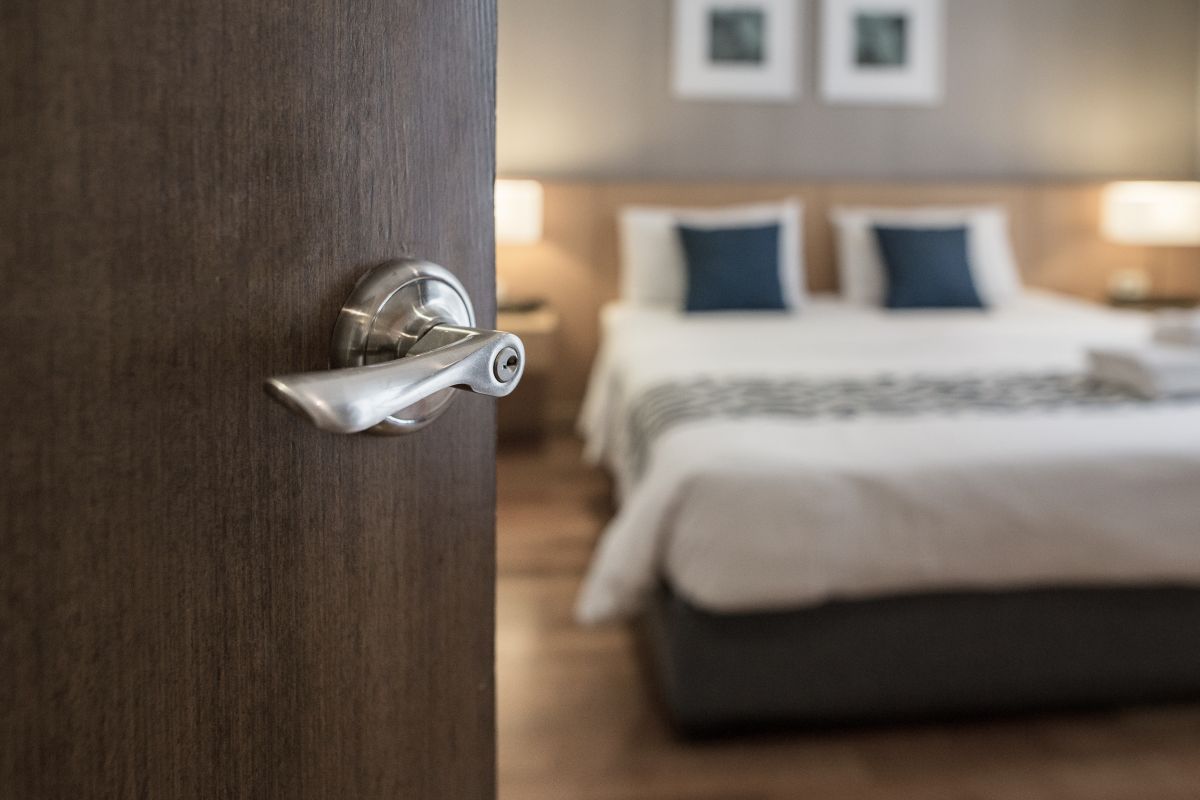
Everything you need to know about Hotel Campaigns in Google Ads
Do you want to start advertising on Google Hotel Ads? Or have you already started, but want to get more out of it? We got you covered!
On this page, we share everything you need to know about Google Hotel Ads, also known as Hotel Campaigns in Google Ads.
Navigate to:
What is Google Hotel Ads?
Just like Expedia, Trivago, Tripadvisor or Booking.com, Google Hotel Ads is a metasearch platform. On a metasearch platform, travellers compare prices and accommodations. About three quarters of all travellers make use of this. Among those metasearch platforms, Google Hotel Ads is a fast-growing one.
Google Hotel Ads allows you to create hotel campaigns and show your prices and availability to travellers through hotel advertisements. Hotel Ads pop up in relation to a user's search.
Google results pages progressively integrates Google Hotels. This permits Google to show the ads in a smarter and more prominent way. In contrast to Google Search Ads, Google itself determines among which search terms your Hotel Ad is shown.

Can you use Google Hotel Ads just for hotels?
No, you can advertise your hotel, but also a camping site, holiday park or, for example a vacation Rental. As an online travel agency or tour operator, you can as well advertise an accommodation that is also advertised by the owner or other party on Google Hotel Ads. From there, you have the opportunity to upsell on your own landing page. It is advisable to be selective in your advertisement decision-making. Make clear and evident price agreements with the pertinent accommodation (owners). Campsites for tents are not eligible for Google Hotel Ads.
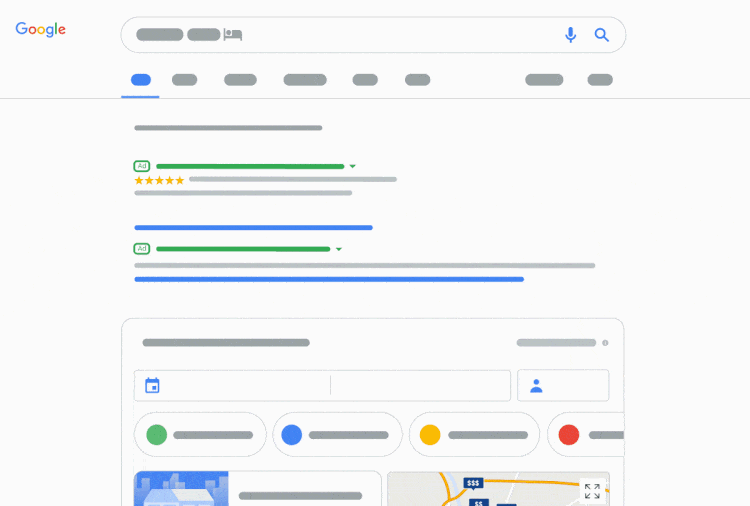
What is Google Travel?
Google Travel is an overarching department at Google that includes Google Hotels and Google Hotel Ads. This Google umbrella (Google.com/travel) focuses among other things on travel matters such as flights, hotels and holiday homes.
Although Google Travel is reachable via its own URL, many users unknowingly end up in this environment after a search, for example when they are looking for a hotel or a flight.
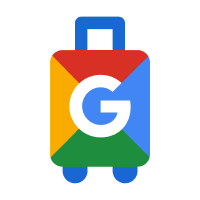
Why use Google Hotel Ads? The advantages:
You remain the data owner
Through a hotel ad, customers end up on a landing page on your website where they can book. You can use this customer data for your own (future) marketing campaigns.
You accumulate more bookings at a lower cost
You determine what you pay through the different bidding strategies and are not bound by the high commissions of Booking.com, for example.
Therefore, low-threshold starts can be a big advantage (for example with only 1%, but 3-5% would be even better). Besides, Google increasingly places Hotel Ads more prominently in the search results.
Everyone has equal opportunities
You do not need to have experience or a high position in Search Ads. You could, for example, get great results with new brands too. All advertisers are treated equally.
With Free Booking Links, you can start for free
Free Booking Links allows you to organically display your prices, meaning you don't have to bid and pay for them. The only thing required is that you send your prices and availabilities to the Google Hotel Center.
Everything you need to know about Google Hotel Ads
Learn how to optimize Google Hotel Ads: from basic adjustments to maximum optimization.
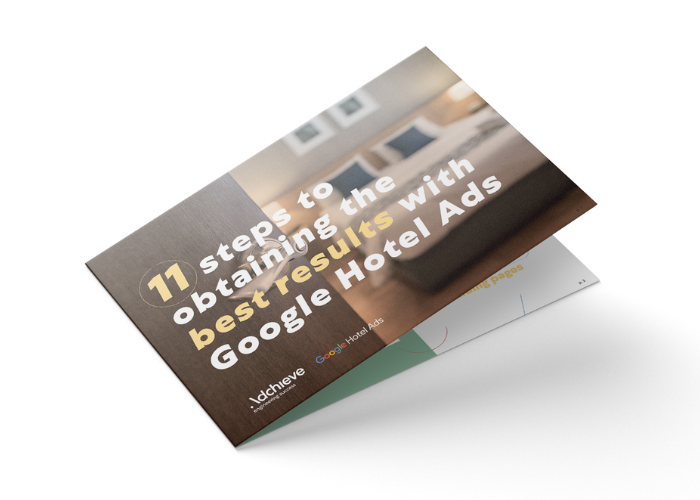
How do visitors find my Google Hotel Ads?
Via a general search in Google (hotel “city x”)
A search with a general term, for example 'Hotel Paris', will take you to a so-called SERP (Search Engine Result Page) in Google. Between the ads (SEA) and organic results (SEO), a traveller finds recommendations based on their search. They often stand out prominently!
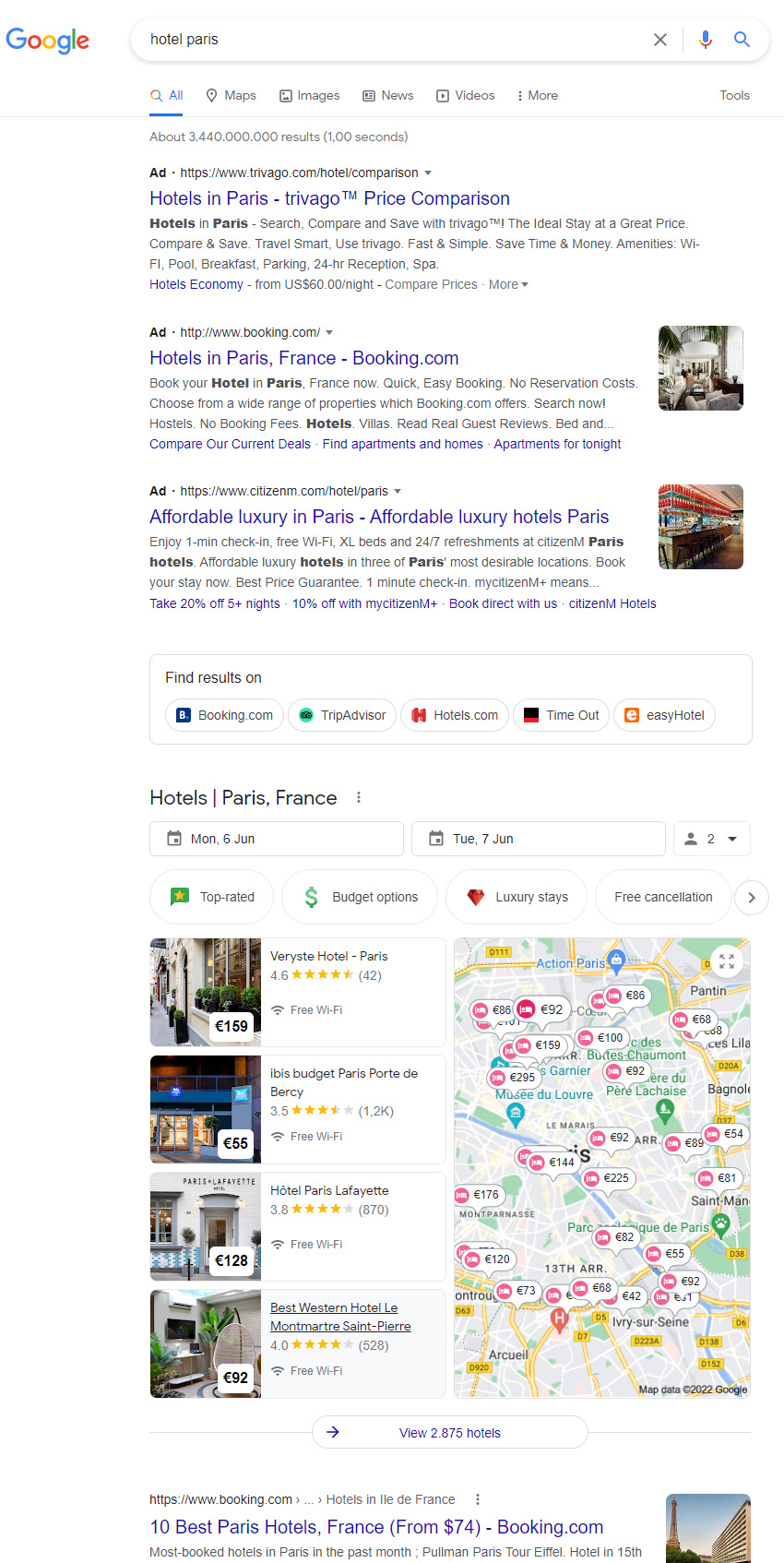
Via a specific search in Google (hotel name “x”)
When a traveller searches for the name of an accommodation, for example 'Dormio Resort Les Portes Du Grand Massif', its Google Business Profile will appear on the right side of the desktop browser. On mobile, the Google Business Profile will appear under the Search Ads. All advertisements are displayed there too. This includes Dormio's own advertisement via Hotel Ads, but also that of all resellers who use this term in their advertisements.
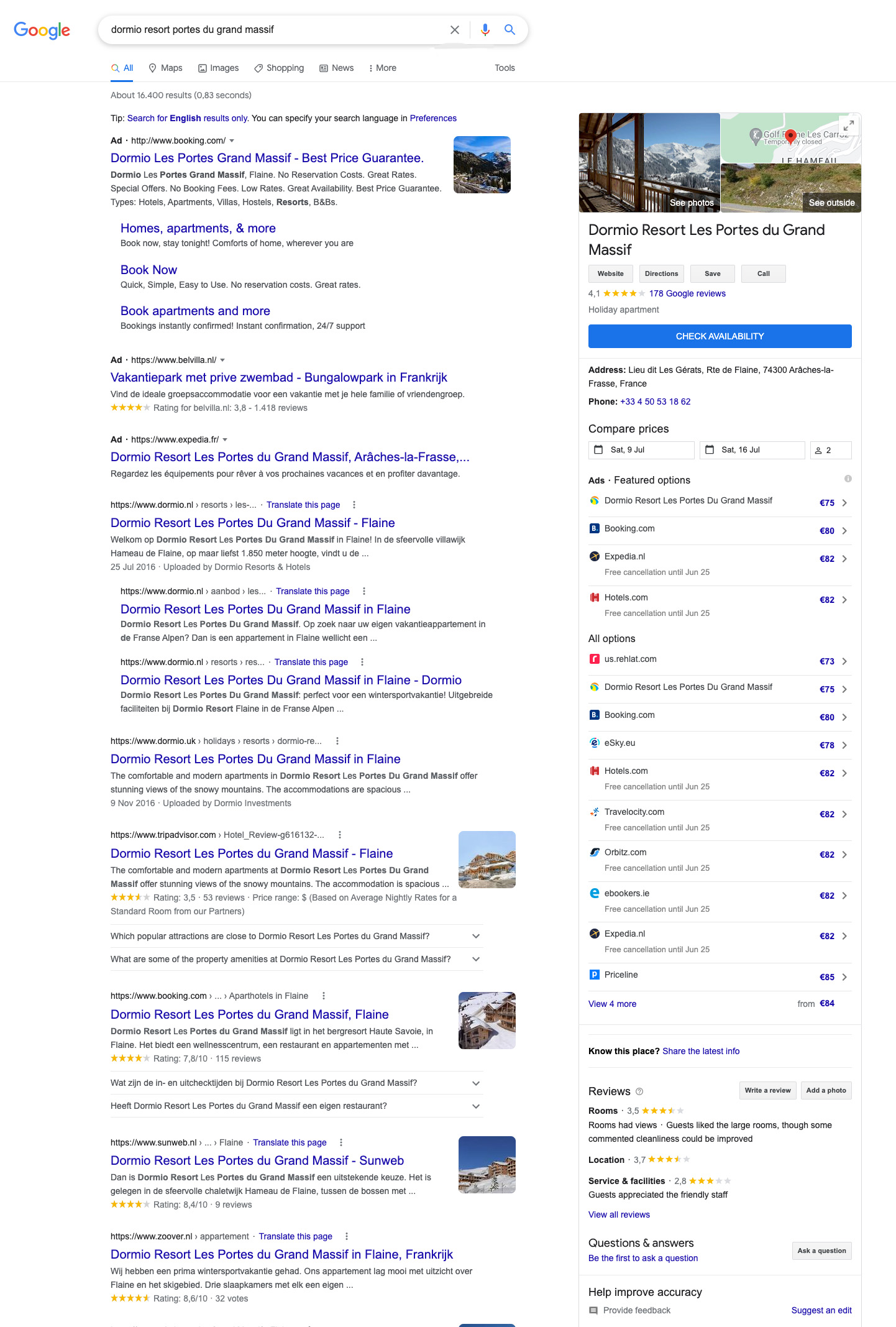
Via Google Maps
Do you want to advertise in Google Maps? This is also possible by using Hotel Ads. For example, if a traveller searches for 'Hotel Barcelona' in Google Maps, they will immediately see all recommendations with their corresponding prices.
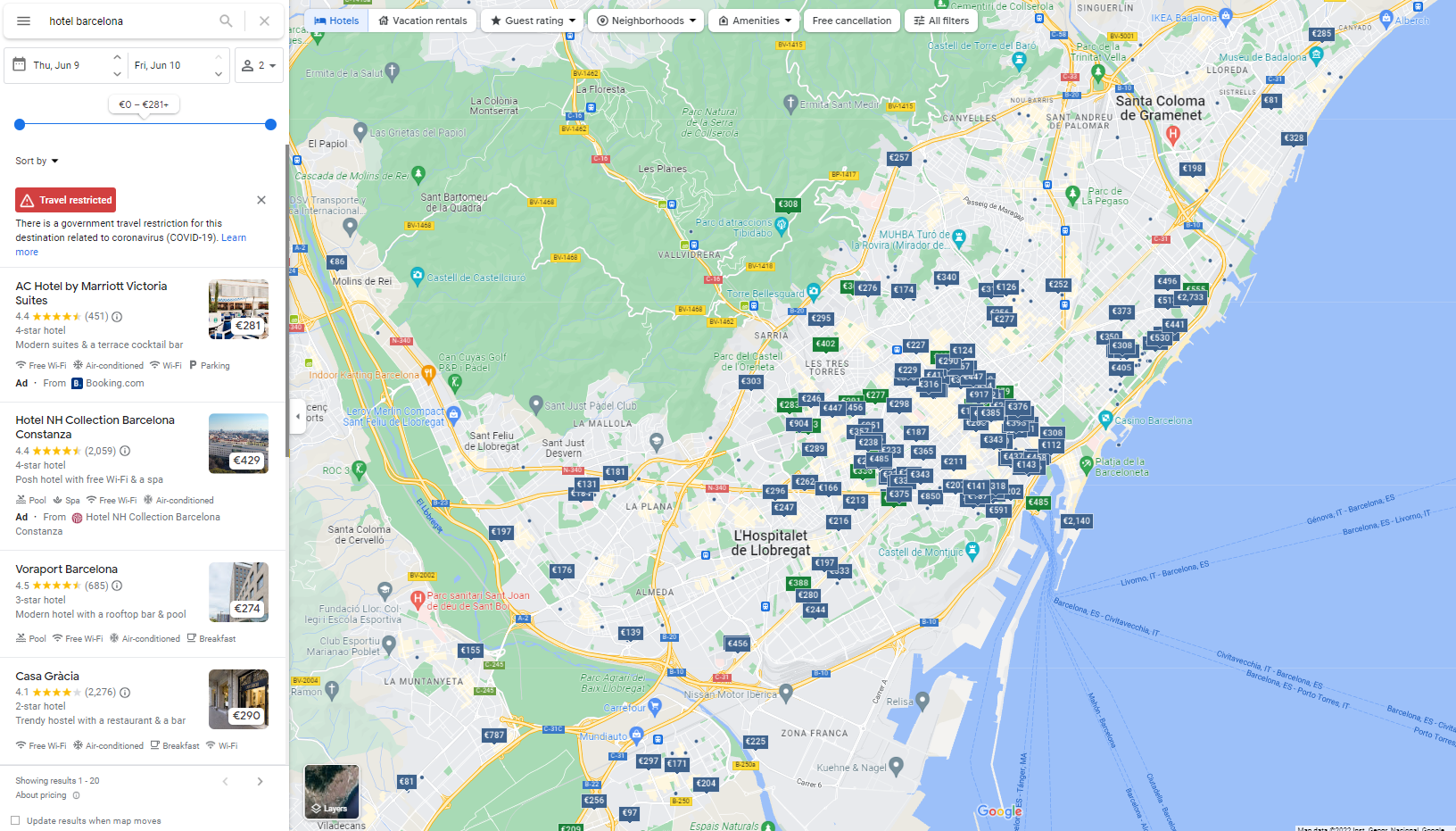
How does Google Hotel Ads work?
Getting started in 5 simple steps
To use Google Hotel Ads, you must be connected to Google Hotel Ads via direct integration. Usually, Google recommends an integration partner.
The following steps are taken during an integration:
- 1 Upload a feed with your accommodations (CSV or XML). The feed must match the data in your Google Business Profile, because the phone number, latitude and longitude from the feed are matched with data in your Google Business Profile for verification.
- 2 Set up a real-time API link with your booking system and Google to synchronize current prices and availability.
- 3 Define the URL destinations and upload the feed. This is how you tell Google where to redirect the traveller to, when he or she clicks on the price of one of your properties.
-
4
Testing: Price accuracy is an important part of Google Hotel Ads. That’s why in this step, you will test the integration, and confirm that the prices that are shown in your ads, match with prices on the landing pages of your website.
-
5
The last step is to choose an appropriate bidding strategy and start creating your campaigns. Optimize your ranking according to the various ranking factors.
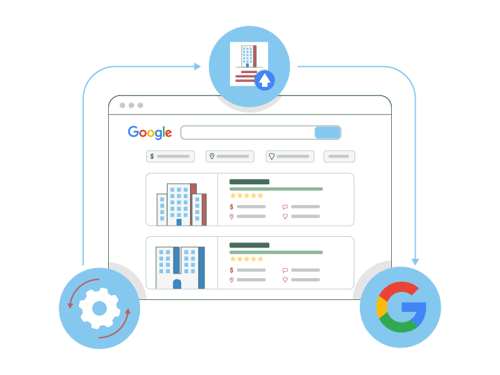
What are Google Hotel Ads’ ranking factors?
A Google Hotel Listing solely, is not enough. Since your prices are shown in your Google Business Profile, it is extremely important that these are up-to-date. Collect Google Hotel Ads reviews, for example.
In addition to an optimal Google Business Profile, there are a number of other factors that ensure that you rank well in Google Hotel Ads. Some examples:
- The degree to which the prices in the ads match the prices on your website.
- The degree of user-friendliness of your landing pages.
- Your price compared to that of your competition.
- Your bids.
- Whether you use room bundles.
- Whether you have acquired the official site badge.
- Whether you use highlight extensions.
- The amount of clicks you receive (this number tells Google how relevant your party is).
Do you want to rank higher and obtain better results using Google Hotel Ads?
Read our 11 step optimization guide for obtaining the best results with Google Hotel Ads.
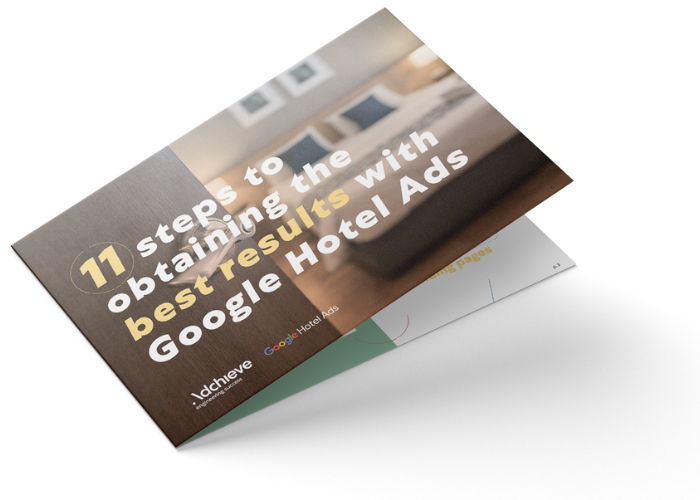
What are Google Hotel Ads’ bid strategies?
The cost of Google Hotel Ads varies and depends on the bidding strategies chosen. A key advantage of Hotel ads is the ability to apply different bidding strategies, such as Target ROAS and Enhanced CPC.
Changes to commission-based bidding strategies
From 30 April 2024, commission (per stay) and commission (per conversion) bidding strategies are no longer available for new hotel advertising campaigns. Active campaigns with commission-based bidding strategies will continue to run until February 2025. Historical reporting data will remain available, and it is recommended to change bidding strategies before this date to ensure campaign continuity.
Why these changes?
With the termination of third-party cookies and the move to more sustainable strategies, commission-based bidding strategies are being modified. These strategies rely on third-party cookies to measure when a customer has stayed overnight in a hotel and calculate the corresponding commission.
What to do after termination?
You can change your campaigns' bidding strategies to Target ROAS or Enhanced CPC to keep your campaigns active. In addition, you can create new Performance Max campaigns for travel goals to use the same inventory with a unified performance strategy.
Performance Max for travel goals is a multi-channel targeted campaign to drive more direct hotel bookings. These campaigns use Google's powerful AI to reach potential guests across all of Google's ad channels and inventory with one simple configuration.
You can read all about the strategies in our blog about Google Hotel Ads bidding strategies

What is the Google Hotel Center and how can you connect an API?
It is important that Google is aware of your current prices and availability so that it can show the correct data to the user/visitor. Therefore, the Hotel Center is your foundation.
The prices in your booking engine are synchronised with the Google Hotel Center via a so-called Google Hotel API (Application Programming Interface). This API ensures that your prices and availability are automatically forwarded and updated.
In the Hotel Center overview you will see a rundown of the quality of your accommodations, prices, landing pages and reports. All factors quite obviously need to be in optimal condition.
If you work with an integration partner, you will often use their hotel API. Next to that, they will manage the Hotel Center for you.
Needless to say, The Google Hotel Center is not visible to visitors who do a search.
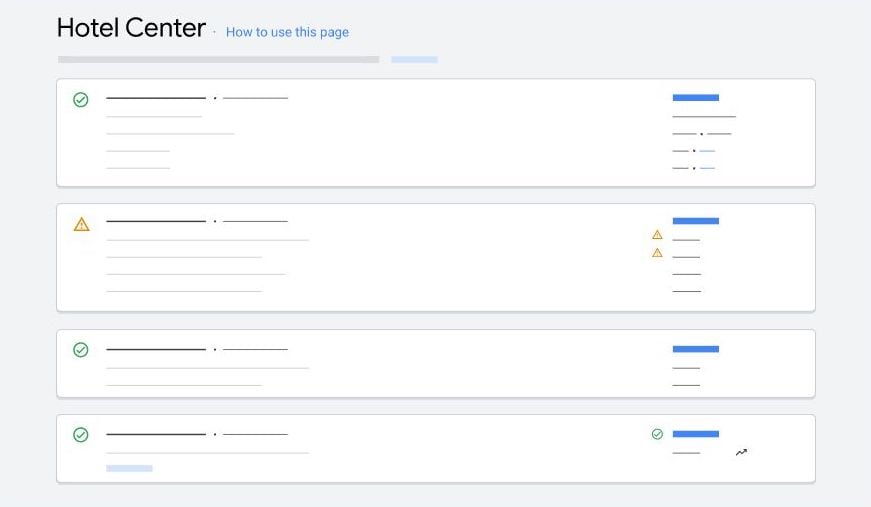
Why use a Google Hotel Ads integration partner?
An official Google Hotel Ads integration partner, such as Adchieve, has its own Hotel Center and sends your prices fast and optimal to Google by connecting with your reservation system.
Often, you can integrate between 4-6 weeks. Customarily this process follows these three steps:
- 1 We upload a feed with all your properties to Google, so that it is clear on which Google Business Profiles you want to advertise.
- 2 We make a link with your reservation system (Stratech, Maxxton, Mews, Bookzo or any other system you use).
- 3 We forward dynamic landing pages that are accurate and lead to conversions.
Our experience with thousands of accommodations, has taught us how to best optimise your Hotel Ads. If you wish, you can also use our campaign creation and bid management software for optimal input, control and results.
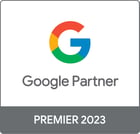
Adchieve is an official Google Hotel Ads partner. Learn more about the official Google Hotel Ads integration partner Adchieve.
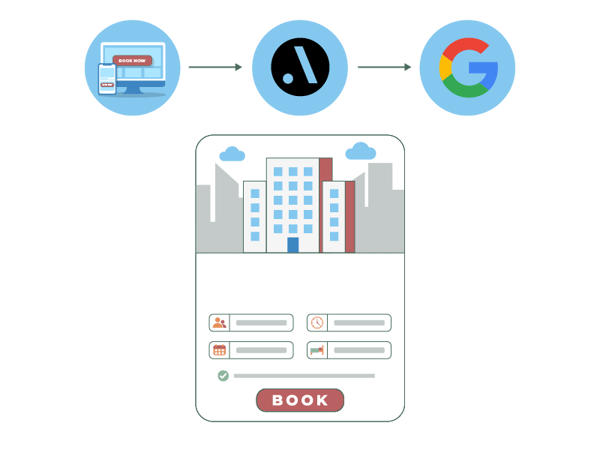
Hotel Ads vs. Vacation Rentals
Google Travel’s ‘accomodations’ exist out of Google Hotel Ads and Vacation Rentals. To become an accomodation, you must offer short-term overnight stays to the public.
Hotel Ads
If your property has a listed Google Business Profile and provides a physical location with a continuously operating reception (and the location is open to the public at all times), Google considers the property a hotel.
To appear in Google Hotel Ads, the accommodations need to meet a number of qualifying criteria:
- In essence, the accommodation must offer a room where guests can spend the night.
- The space must have solid walls and is equipped with sanitary facilities.
- There must be a reception that is open and operating during normal business hours.
- It should be feasible to book for a minimum of 7 days/nights, preferably less.
Vacation Rentals
If you own a house, apartment, or other short-term (furnished) accommodation without a continuously operating reception or accept ‘walk-in’ reservations, it could qualify as a Vacation Rental. You can then advertise using Google Vacation Rentals.
A holiday park is therefore more likely to advertise on Google Hotel Ads and a holiday home on Vacation Rentals. Read more about Vacation Rentals here.
Hotel Ads vs. Google Ads
Google Hotel Ads is part of Google Ads. Next to Hotel Ads, Google Ads also offers Google Search Ads and Google Shopping Ads.
In the industry of hospitality, in addition to Google Hotel Ads, advertisements are often also placed on Google Search Ads.
Perhaps the biggest difference between the two channels is that with Hotel Ads you cannot choose the search terms for which you want to rank. Other differences are the degree of competition, the location or placement of your ads, what you pay, the available bidding strategies, etc. For your visitors and future guests, Search Ads and Hotel Ads also look dissimilar and follow a different format.
In the table below you can see the differences at a glance:
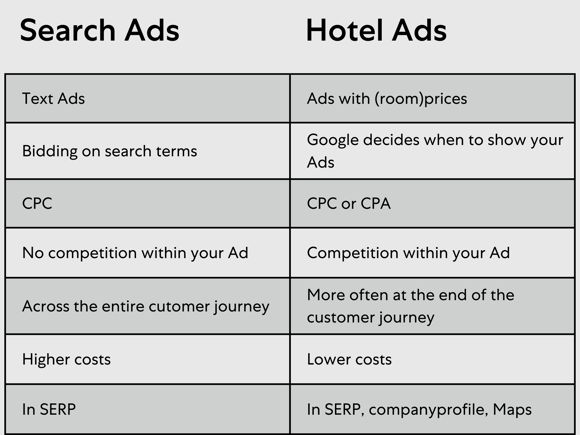
The two channels complement each other perfectly. An important question you should ask yourself is at which moments of the customer journey of a traveller you want to be visible. For example, you often see Search Ads throughout the entire customer journey and Hotel Ads are often shown at the very end of the customer journey.
In this article you will read how to optimally use Search Ads and Hotel Ads side by side.
Everything you need to know about Google Hotel Ads
Learn how to optimize Google Hotel Ads: from basic adjustments to maximum optimization.


